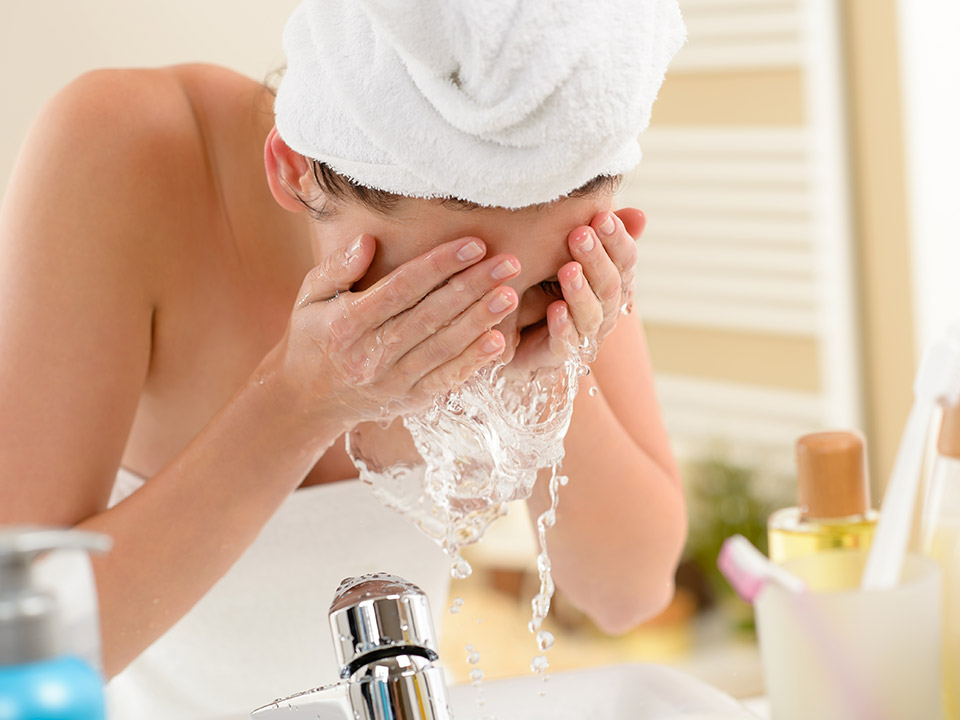How To Safely Clean Your Eyes

Every person’s worst nightmare is ending up with foreign particles or dangerous chemicals in the eye.
While eyelids, eyelashes, eyebrow ridges, and tears are all part of a safety system designed to protect the eyes from foreign objects, they are not surefire. There are times when you may, by chance, spray perfume inside your eyes or squirt ketchup.
It can get painful or a little uncomfortable. Whichever the case, if you need to flush out your eyes, there are safe ways to do so. The information below highlights a few ways to clean your eyes to ensure no harm or damage.
How Often Should You Clean Your Eyes?
We recommend cleaning your eyes only if something foreign has gone inside them, like dust. Otherwise, tears are safer and give a more natural wash with every blink.
When you flush your eyes with plain water, you use a hypotonic solution that irritates the eye’s delicate tissues. And with heavy exposure, the tissues can absorb water, swell and possibly lead to eye infections.
For the most part, your eyes should be self-cleansing and irrigated by the body’s fluids. But if for any reason that is not happening, or you feel the need to wash your eyes far more frequently due to irritation or stickiness, you need to get your vision tested.
How To Properly Clean Your Eyes
The best way to safely flush out your eye depends on what’s inside.
Chemical
If it is a chemical liquid, such as bleach or household cleaner, the first step should be to scrutinize the label for safety instructions. Experts usually recommend flushing out your eye using warm water.
If there is no label, rinse your eye with water for about 15 minutes. You can do this in the bath, shower, or over a sink.
After you have flushed out your eye, contact your local poison control center for further instructions according to the chemical. A good rinse should get your eyes cleaned up for things like shampoo or soap.
Dirt or Debris
These are certainly the most prevalent attacks on the eye. Every now and then, people get dirt, sand, or dust particles in their eyes.
Fortunately, this should not be a cause for concern since the tears can flush out the particles with a few blinks. Sometimes, the particles may get stuck on your eyeball, prompting you to flush out the object on your own. In that case, you can use either clean cotton or cool water.
With cotton, stare at the mirror and look for any object near your eyelid. If any, gently wipe with clean cotton, a wet washcloth, or tissue. Sometimes, you can gently move it toward the eye’s inner core to make the process a breeze.
If you are going to flush out your eyes with cool water, here is a standard procedure for doing so:
First, wash your hands thoroughly with warm water and soap. The next step is to remove contact lenses if you have one.
Flush out your eyes with warm water for a maximum of 15 minutes, making sure to stop at a few intervals to see if the eyes have been flushed out. You can do this in multiple ways:
- Bend over the sink with the faucet on. Face your head down beneath the running water while tilting your head side to side for warm water to flow into your eyes.
- Stand in the shower and let warm water run gently through your forehead into the eyes at low pressure.
- Ensure that you keep your eyes open for longer, and try not to tilt your head backward.
- Fill a basin with water and immerse your face in it while blinking.
- Bend over a sink and gently pour warm water into your eyes using a glass or pitcher. Make sure to tilt your head to the side for warm water to penetrate your eye.
- If you are assisting a kid, hold their eyelid open while water flushes it out. Make sure to keep the child calm so that the process runs smoothly.
Mucus or Pus
Dry mucus or pus can get uncomfortable or itchy. Usually, this comes from pinkeye, allergies, or cold. Or you may have issues with the oil glands in your eyelid or a blocked tear duct that clogs things.
In that case, first, break any crusty discharge. Dip a clean washcloth into warm water, then place it on your closed eye for a few minutes. Warm the washcloth again to get rid of the gunk.
Afterward, use either the corner of a washcloth or a wet warm cotton ball to wipe your closed eye in the inner and outer corners. Repeat the process until your eye is clean.
What to Avoid
When something gets stuck in the eye, your first reaction would probably be to rub it to remove the object.
If you have been doing this, it is time to stop, as it can worsen things by pushing the foreign material, making it scratch the cornea and eventually resulting in corneal abrasion. Even though doctors can treat this condition, it can be painful.
Is Cleaning Eyelashes and Eyebrows Necessary?
Eyelashes and eyebrows are also prone to oil, dirt, and dandruff, meaning you should clean them properly. Not only will they look better and last longer, but washing them will ensure they do not harbor bacteria that could quickly enter the eye and trigger an infection.
You can clean them using face wash or other products such as a brow serum or tea tree oil. You can then maintain them to look their best.
In Conclusion
You should never take chances when it comes to your vision. Your eyes can clean themselves, but it could be necessary to wash them normally following an infection or injury. And if flushing does not work, seek out immediate medical attention.
We treat foreign objects in the eye as emergencies. Therefore, visit our establishment if you have something in your eye and the above methods do not work.




